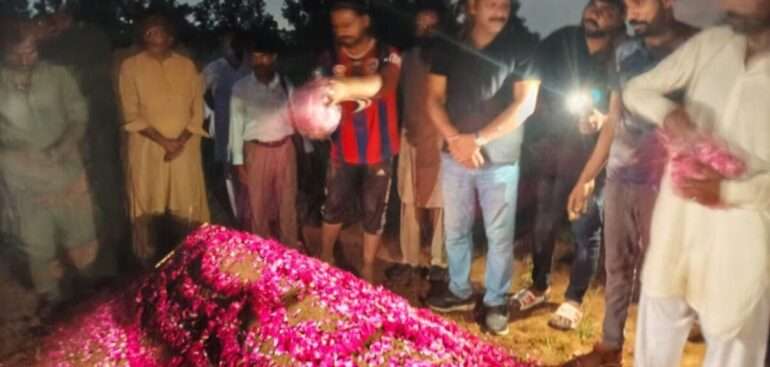At just 25 years old, Nabil Masih’s life came to an end quietly, painfully, and far too soon. But his story, marked by injustice, isolation, and perseverance, will not fade into silence. His journey from a 16-year-old boy in a small Pakistani town to a symbol of systemic persecution lays bare the cruelty of Pakistan’s blasphemy laws and the deep wounds they inflict upon the country’s most vulnerable.
Nabil was arrested on September 18, 2016, in Phoolnagar near Kasur, accused of sharing a blasphemous image on Facebook — an image he always denied posting. The accusation alone, regardless of truth, was enough to ruin his life. He was a child, barely old enough to understand the weight of such a charge. Yet the state chose to treat him as a criminal, not as a minor deserving of protection.
Despite his age, Nabil was charged under Sections 295 and 295-A of the Pakistan Penal Code — laws meant to uphold religious respect, but too often weaponized against minorities. He was denied bail, held for years without trial, and in 2018, sentenced to 10 years in prison. The courts failed him. The system failed him. Society failed him.
Behind prison walls, Nabil endured not only physical and mental abuse but also crushing solitude. He lived under the constant threat of violence from inmates and guards. His body, too, began to deteriorate, developing painful, untreated tumors. Only in March 2021, after nearly five years in custody, did the Lahore High Court finally grant him bail on medical grounds.
But freedom came too late.
Nabil underwent surgery for the tumors in May 2021, only to face a relapse in early 2025. Then, in June, he was struck by acute Hepatitis E, a condition made worse by years of neglect and poor health. He was hospitalized in Lahore, where his condition briefly stabilized before worsening. By mid-July, he could no longer speak or walk. On July 31, 2025, Nabil passed away — a young man broken by a system that never allowed him to truly live.
His death, though quiet, resounds like thunder.
Nabil’s case is not an anomaly. It is a reflection of a pattern — a system where blasphemy laws are misused to target minorities, settle personal scores, and provoke mob violence. In such a landscape, justice is not blind; it is absent.
His story demands answers: Why are children treated as enemies of faith? Why do courts move slowly when lives hang in the balance? Why do laws designed to protect become tools of terror?
Nabil Masih didn’t die only from disease. He died from abandonment, from institutional cruelty, from a nation’s silence.
Let his death not be in vain.
Let his name echo in courtrooms, classrooms, and places of worship as a reminder that justice delayed — and denied — is justice buried. Let it compel lawmakers to reform, religious leaders to speak, and society to act.
Nabil Masih — You were silenced, but your story must roar.
Your suffering must awaken a conscience. Your death must ignite change.
